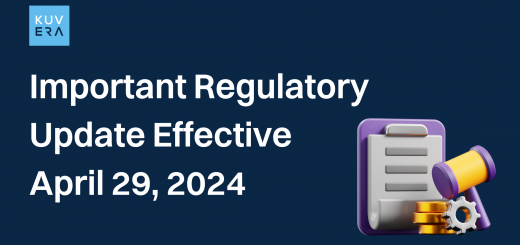When it comes to buying your first home, there are a lot of emotions involved. It is often seen as a big milestone in an adult’s life. However, the process of buying a home, from acquiring a loan to registering the house in your name can be overwhelming for first-time buyers. But choosing the right home loan that is suitable for you is one of the most crucial steps in this process.
Along with being one of the biggest financial liabilities, for most people home loan is also one of the first long-term loans that they undertake in their life. This is the reason why so many people have limited knowledge about various factors to consider while taking a home loan.
Today, we are going to discuss some of the most important factors you need to consider before getting a home loan.
1. Eligibility Criteria:
Not everyone is eligible for a home loan and if you are eligible for a home loan then there is an upper limit to the amount of home loan that you can take. There are various factors that your bank will consider while deciding your eligibility and loan amount. Some of these factors include:
- Education qualification
- Source & stability of income
- Spouse or any other financial dependent
- Credit score, etc.
You can get a rough idea about your home loan eligibility by going through the details present on the bank’s website. There are also various online home loan eligibility calculators and home loan EMI calculators that can give you a rough idea of the amount & tenure of loan you might qualify for.
2. Credit Score:
You can check your credit score by logging in to CIBIL’s website and providing them with relevant information. A score between 700 to 900 means that you have a good credit score and you can negotiate your loan terms based on this score. The higher the score the more likely it is that you will get a better deal on your loan terms.
3. Types of home loans based on purpose:
There are different types of home loans that are provided by the bank according to your needs. These are:
- Basic home loans: These are your regular loans to buy a home.
- Home construction loan: These loans are for landowners who want to construct a house on the existing land.
- Home extension loan: For renovation or expansion of existing home.
- Home Loan Balance Transfer: For people who already are repaying their home loan and want to transfer it to a different lender for better benefits.
4. Types of loans based on terms:
A home loan consists of multiple types and terms that you need to know to make an informed decision. Some factors that you need to check are:
- Tenure of the loan: Typically the tenure for working professionals can last from 10 to 30 years. It is important to find out a period that will be best for your financial requirements. While it is important to pay off your debt quickly, it is equally important that the Equated Monthly Installment (EMI) is sustainable and can be accommodated into your monthly finances.
- Types of EMI: There are various kinds of EMI options that are provided by lenders to make it convenient for you to pay off the loan easily. There are fixed rate EMIs where the interest rate is fixed at the time of taking the loan.
There are EMIs with overdraft options and even floating rate EMIs where the interest rate changes according to the market interest rate. If the market rates increase, your EMI also increases. If the market rates fall, your EMI will also fall.
There are also flexible EMI options, where the bank allows you to pay unequal EMIs in the form of step up or step down loans. You need to evaluate all these and choose one that will be most beneficial for you.
- Foreclosure requirement: Foreclosure is when you want to pay off the remaining balance of the loan in a single go. Many lenders have special rules and regulations that you need to follow if you want to foreclose your loan before the tenure. For example, home loans with fixed interest rates may have a 1% to 5% foreclosure charge.
You must know about these rules beforehand so that you can make the right decision if you want to foreclose your loan in the future.
5. Mandatory documents needed:
This is pretty much a given. You need various documents like your Aadhar, PAN card, property documents, salary slips, etc to be able to avail of the loan. You might not have some of these documents. Therefore you would need to make them before you can apply for the loan. Make sure that you know about all the documents needed before you apply for the loan.
6. Keep all the additional charges in mind:
Interest is not the only thing you need to keep in mind while getting a loan. There are also additional charges like processing fees and extra charges that are levied by the lenders. These charges can be sneaky and can be difficult to keep track of. It is important to know about all the charges & penalties that might be levied on you.
7. Make a plan for future finances:
When you take a home loan, the regular EMI payment is the most important thing to consider. Therefore, it is advisable to make conscious financial decisions and leave below your means.
8. In case of default:
Adding to the last point, it is important to know what the consequences of default in payment of EMIs or multiple EMIs might be. There can be situations where paying the EMI might be difficult, in that case, what is your lender offering? If the rules of repayment are very rigid, you might want to consider making an emergency fund for the same.
9. Read the fine print:
While taking a huge financial decision like a home loan, it is extremely important to read all the necessary terms and conditions properly. Clear all your doubts & confusion before signing the papers. Similarly, it is also important to keep all the documents about the loan safe as these documents might be needed at the end of your loan tenure.
10. Negotiate:
Once you have sufficient information about the various charges and fees and types of loans being offered in the market, you should try to negotiate enough to get the best deal. If you have a good credit score, banks may agree to waive off some fees or charges. Some private banks may also reduce the rate of interest. You should take sufficient time and ensure you are not making any decisions in a hurry.
Interested in how we think about the markets?
Read more: Zen And The Art Of Investing Watch/hear on YouTube:
Start investing through a platform that brings goal planning and investing to your fingertips. Visit kuvera.in to discover Direct Plans and Fixed Deposits and start investing today. #MutualFundSahiHai #KuveraSabseSahiHai! #IPO










